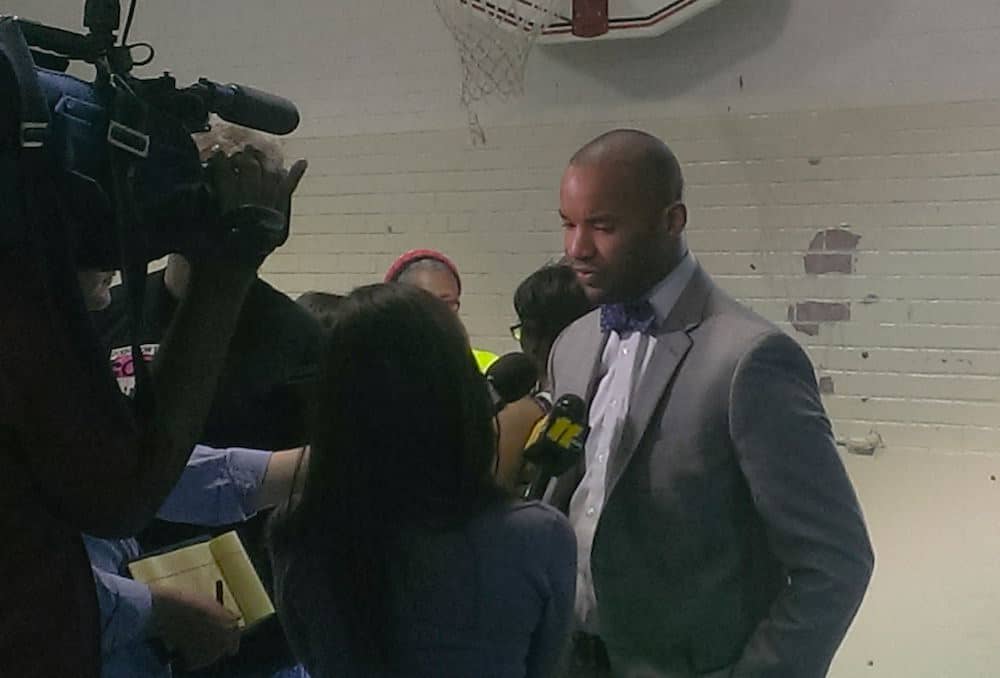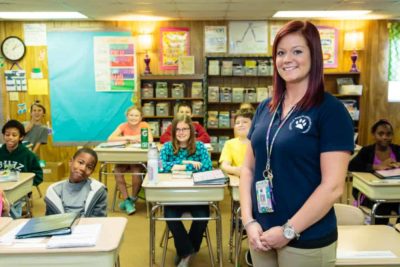

Media coverage of the book controversy in Orange County, North Carolina has made its way across the country to Orange County, California. It is about a teacher who read to his third grade class the book, King & King, which describes a prince who decides that he wants to be with a prince rather than a princess. North Carolina is no stranger to this kind of controversy with Charlotte Mecklenburg Schools going through a book ban controversy in 2006 over a book that describes the real story of two male penguins protecting an egg together until it hatched. This book – And Tango Makes Three – is the third most-frequently challenged book in 2014 according to the American Library Association.
That’s enough fodder for a provocative discussion about how public schools navigate encouraging respect for diversity without taking a deep dive into cultural wars.
But that’s not exactly what I want to explore here because what these controversies expose are more fundamental issues about who gets to decide what gets taught in our schools.
So let’s start with a brief summary of legal rights and responsibilities.
A book like this one would be considered “supplementary material.” It isn’t a state-approved textbook. This distinction matters because the State Board controls the selection of textbooks and local boards control the selection of supplementary materials.
“Textbook” is broader than it might sound. It can be technology-based programs or classroom kits or any other kind of “systematically organized material comprehensive enough to cover the primary objectives.” But if it doesn’t fit this definition, it is considered supplementary materials and is under the local board’s control. It seems likely that as school leaders and teachers seek to provide a dynamic, media rich learning environment they will seek to use more supplementary materials.
If that’s the case, we likely will have more rather than fewer local controversies.
It would be impossible for a local board to review and approve all supplementary material. Orange County Schools provides for a committee to select material at the school site. For any other materials used by teachers, Orange County Schools board policy provides that “[p]rincipals shall establish rules concerning what materials may be brought in by teachers without review. Principals are encouraged to involve teachers in establishing these rules.”
While some teachers may bristle at this top down approach, they do not have any constitutional free speech rights in the selection of curricular materials. That matter was squarely resolved by the Fourth Circuit Court of Appeals in a case out of Buncombe County Schools where a drama teacher proceeded with the play, Independence. She shared the name of the play in advance with the principal. In her description to the court she said the play “powerfully depicts the dynamics within a dysfunctional, single-parent family-a divorced mother and three daughters; one a lesbian, another pregnant with an illegitimate child.” In strong words, the court said:
Someone must fix the curriculum of any school, public or private. In the case of a public school, in our opinion, it is far better public policy, absent a valid statutory directive on the subject, that the makeup of the curriculum be entrusted to the local school authorities who are in some sense responsible, rather than to the teachers, who would be responsible only to the judges, had they a First Amendment right to participate in the makeup of the curriculum.1
And what about parents? Parents have rights often described in school board policy for making objections to materials.
This opportunity is provided at least in part to make sure that a parent’s and child’s constitutional rights, including religion and speech, are not infringed upon in the school setting. Here is how Orange County Schools describes the complaint process and balancing of interests:
Parents may submit in writing objections to the principal regarding the use of particular instructional materials. The principal may establish a committee to review the objection. While input from the community may be sought, the Board believes professional educators are in the best position to determine whether a particular instructional material is appropriate for the age and maturity of the students and for the subject matter being taught.
If the principal and the committee determine that any material violates constitutional or other legal rights of the parent or student, the principal and the committee will either remove the material from instructional use or accommodate the particular student and parent. Before any material is removed, the principal and the committee will ensure that the curriculum is still aligned with the Common Core State and North Carolina Essential Standards and articulated from grade to grade. If an objection made by a parent or student is not based upon constitutional or legal rights, the principal or the committee may accommodate the objections after considering the effect on curriculum, any burden on the school, teacher or other students that the accommodation would create, and any other relevant factors. Books and other instructional materials may be removed from the school media collection only for legitimate educational reasons and subject to the limitations of the First Amendment.2
The policy further provides that the decision of the committee and principal may be appealed to the Superintendent. The decision of the Superintendent may be appealed to the Board.
In the Charlotte Mecklenburg Schools controversy, the superintendent at the time, Peter Gorman, acknowledged that in pulling And Tango Makes Three off the library shelves, they had not followed the school board policy for doing so. Once the policy was followed – providing for the required review – the decision was made to return the book to the library shelves.
In Orange County Schools, other news media reports that the teacher, Omar Currie, sought and received permission from the assistant principal to read King & King after a student in his class was teased for appearing effeminate. When there were parent objections, the committee review process was followed and the committee and the principal supported the teacher in the selection of the book.
While the review process upheld the use of the book, the principal added a new rule that teachers must notify parents of all the books they plan to read. Currie objected, noting that he reads about 150 books in a year to his class.
And indeed, this is worth a moment’s pause. How would this work?
Is it enough for the teacher to give parents the titles of books? Independence and And Tango Makes Three don’t shout out what they are about. What exactly is the burden on the teacher to explain to parents in advance what the book is about? And what if the book is in the library? Do parents need to be notified of all books that are in the library on the chance that a student might choose the book to read during class time or that the teacher might use a book as a part of a lesson plan?
And if this approach makes sense as a rule for books, what happens to other supplementary materials? When the Supreme Court issues its opinion on gay marriage, can civic teachers share newspaper articles or web site analyses? Or must they send this information first to parents or go through some sort of committee approval process?
And let’s add one more thing. New teachers in North Carolina can only be employed on contract. Their contract can be nonrenewed for any reason that is not arbitrary, capricious, political, personal or discriminatory. Some may say this is a good thing – it holds teachers accountable, including for how they make choices around curricular materials. But if teachers don’t have constitutional free speech rights and they have very limited employment due process rights, what exists in the system to support teachers in being creative and innovative? In responding quickly to issues in their classroom?
Don’t we have to worry that this is a recipe for hunkering down and sticking to the textbook rather than seeking the best resources and creatively dealing with issues that arise in their classroom?
I ask these questions in part about this principal’s rule of requiring advance notice to parents of books. I also ask how local boards – in the context of greater opportunities for use of supplementary materials – will create policy that provides for a balancing of rights and interests that best promote educational opportunities for children.
I go back to a key phrase in the Orange County board policy:
“the Board believes professional educators are in the best position to determine whether a particular instructional material is appropriate for the age and maturity of the students and for the subject matter being taught.”
That sometimes these decisions are made in the context of difficult issues doesn’t make this less important. It makes it more important. In Efland, N.C., about 200 people came to a public hearing on King & King. People care about and have opinions on what materials teachers share. What are yours?


